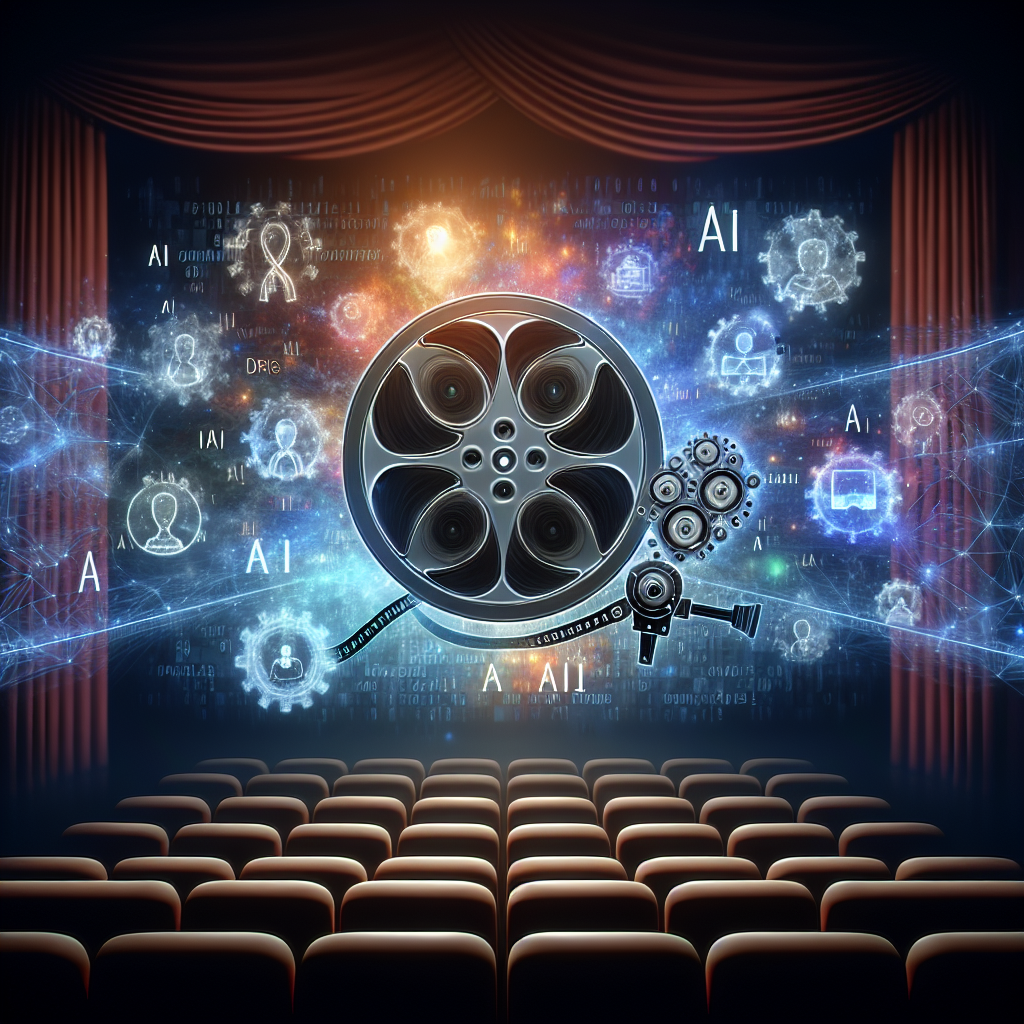Artificial Intelligence (AI) has been making significant strides in various industries, including entertainment. From improving personalized recommendations on streaming platforms to creating new forms of content, AI has the potential to revolutionize the way we consume and create entertainment. However, with these advancements come potential risks that need to be carefully considered. In this article, we will explore the impacts of AI on content creation in the entertainment industry and the potential risks that come with it.
AI in Content Creation
AI has already begun to play a significant role in content creation in the entertainment industry. One of the most common applications of AI in content creation is in the generation of personalized recommendations for users. Streaming platforms like Netflix and Spotify use AI algorithms to analyze user behavior and preferences to recommend content that they are likely to enjoy. This not only improves the overall user experience but also helps content creators reach a larger audience.
Another way AI is being used in content creation is through the generation of new forms of content. For example, AI can be used to analyze trends in popular songs and create new music that is likely to be successful based on those trends. Similarly, AI can be used to analyze popular movies and TV shows and create new scripts that are likely to be well-received by audiences.
The Risks of AI in Content Creation
While AI has the potential to greatly benefit content creation in the entertainment industry, there are also significant risks that need to be considered. One of the main risks is the potential for AI to perpetuate biases and stereotypes in the content that is created. AI algorithms are trained on existing data, which means that they can pick up on biases that exist in the data and perpetuate them in the content that is generated. This can lead to the creation of content that is discriminatory or offensive to certain groups of people.
Another risk of AI in content creation is the potential for job displacement. As AI becomes more advanced, there is a concern that it could replace human workers in the entertainment industry. For example, AI could be used to generate scripts or music that would typically be created by human writers or musicians. This could lead to a loss of jobs in the industry and have a negative impact on the livelihoods of many people.
Furthermore, there is a risk that AI could lead to a homogenization of content in the entertainment industry. AI algorithms are trained on existing data, which means that they are more likely to generate content that is similar to what already exists. This could lead to a lack of diversity in the content that is created, as AI algorithms may prioritize popular trends and ideas over more innovative or unique content.
FAQs
Q: Can AI completely replace human creativity in content creation?
A: While AI has the potential to assist in content creation, it is unlikely that it will completely replace human creativity. Human creativity is a complex and nuanced process that is difficult to replicate with algorithms. AI can assist in generating ideas and content, but ultimately, human creativity is still essential in the entertainment industry.
Q: How can content creators mitigate the risks of AI in content creation?
A: Content creators can mitigate the risks of AI in content creation by being aware of the biases that exist in AI algorithms and actively working to address them. This can involve diversifying the data that is used to train AI algorithms and actively seeking out diverse perspectives in the content creation process. Additionally, content creators can also prioritize human creativity and innovation in their work to ensure that AI does not lead to a homogenization of content.
Q: How can consumers ensure that they are not negatively impacted by AI-generated content?
A: Consumers can ensure that they are not negatively impacted by AI-generated content by being critical of the content that they consume and actively seeking out diverse perspectives in the media that they consume. Additionally, consumers can also support content creators who prioritize human creativity and innovation in their work, as this can help to ensure that AI does not lead to a homogenization of content.
In conclusion, while AI has the potential to greatly benefit content creation in the entertainment industry, there are also significant risks that need to be carefully considered. From perpetuating biases and stereotypes to job displacement and a homogenization of content, there are many potential risks associated with AI in content creation. By being aware of these risks and actively working to address them, content creators and consumers alike can help to ensure that AI is used responsibly in the entertainment industry.

